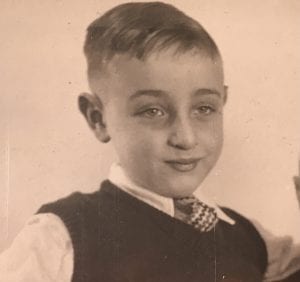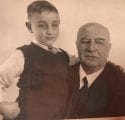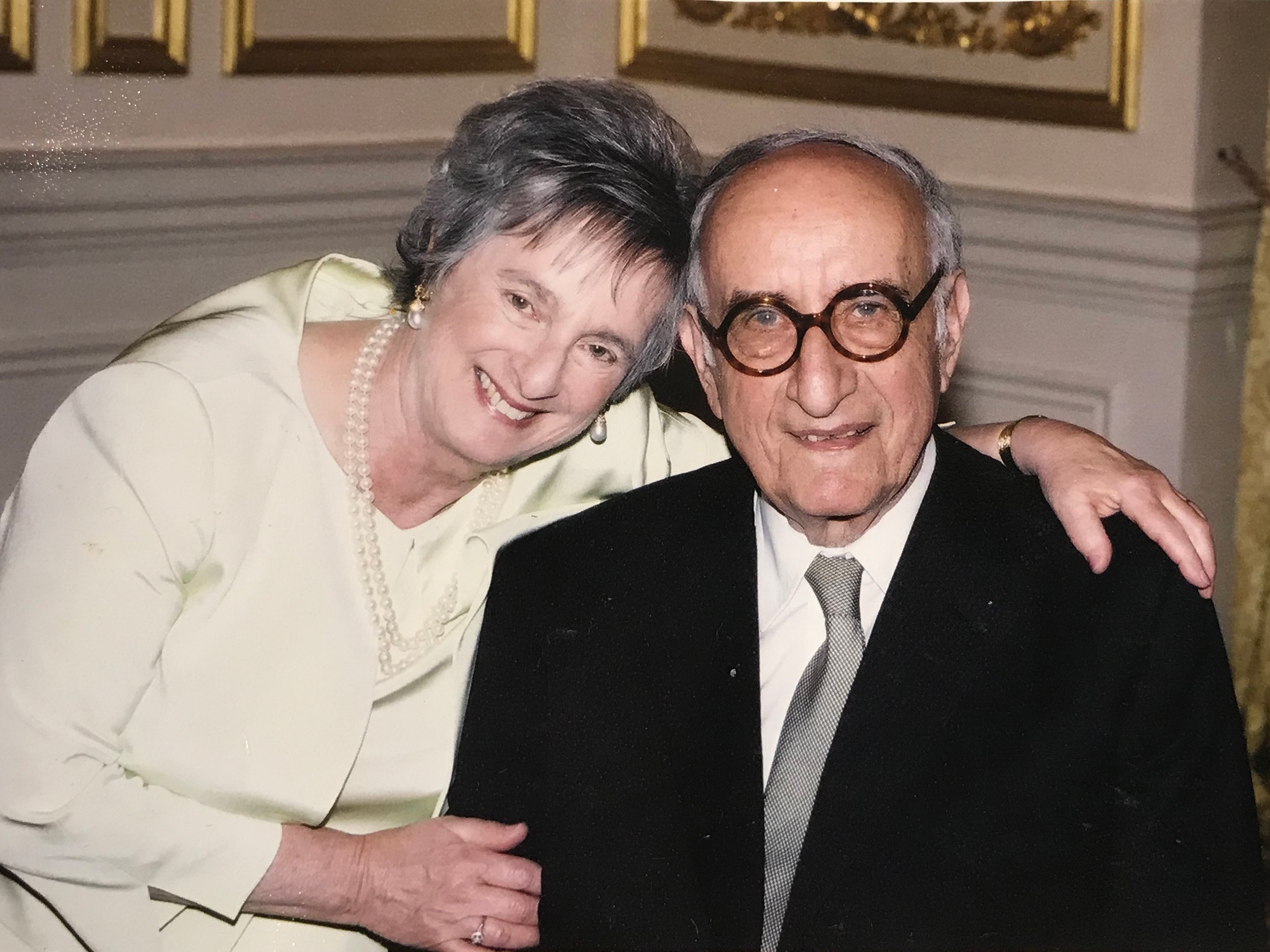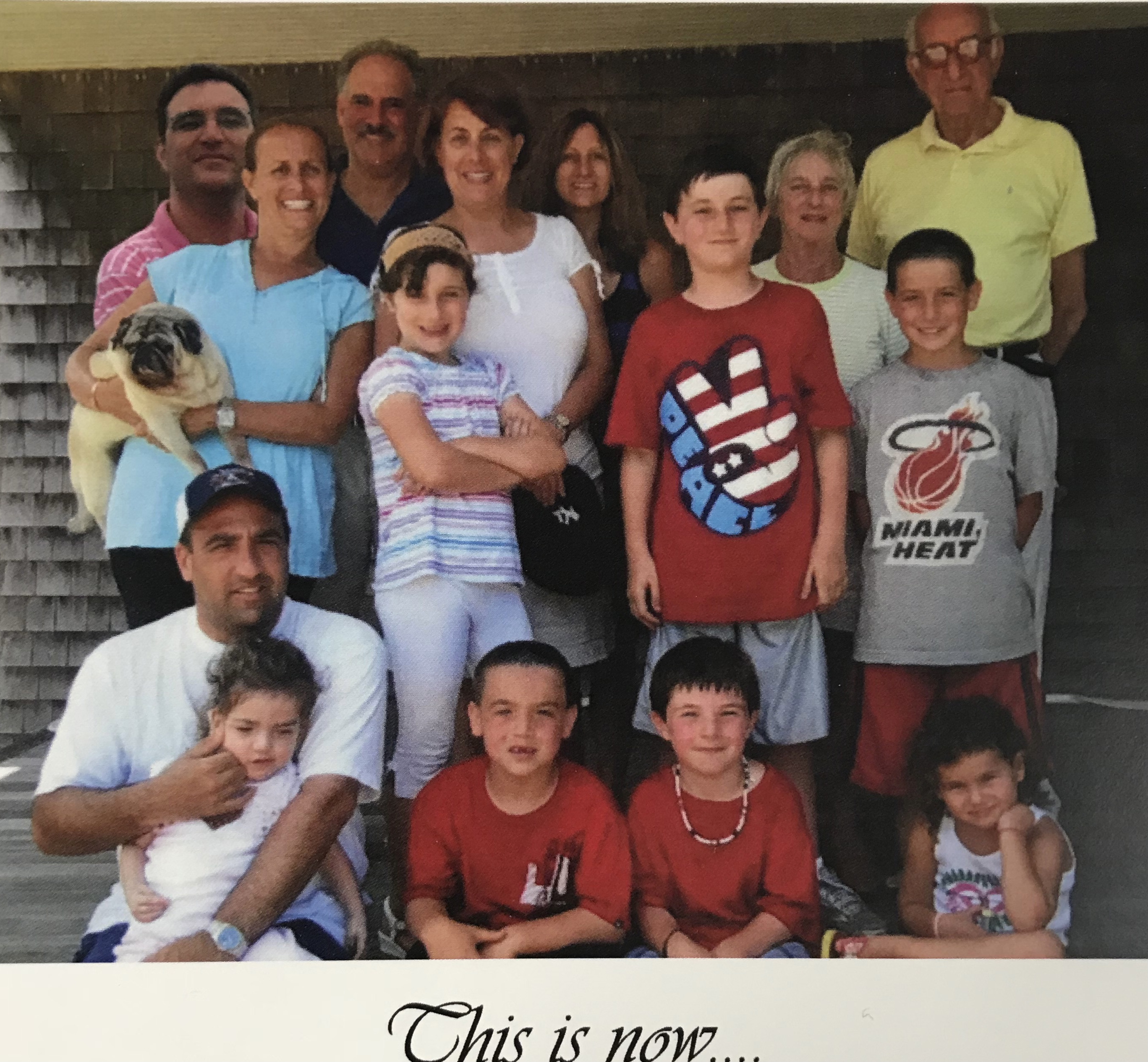- Local Survivor registry
- HERBERT simon BURGER
- Local Survivor registry
- HERBERT simon BURGER
Survivor Profile

HERBERT
simon
BURGER
(1929 - 2017)
PRE-WAR NAME:
HERBERT SIMON BURGER
HERBERT SIMON BURGER
PLACE OF BIRTH:
FREIBURG, GERMANY
FREIBURG, GERMANY
DATE OF BIRTH:
MAY 29, 1929
MAY 29, 1929
LOCATION(s) BEFORE THE WAR:
FREIBURG, GERMANY
FREIBURG, GERMANY
LOCATION(s) DURING THE WAR:
SWITZERLAND; PALESTINE; UNITED STATES
SWITZERLAND; PALESTINE; UNITED STATES
STATUS:
CHILD SURVIVOR; REFUGEE
CHILD SURVIVOR; REFUGEE
RELATED PERSON(S):
ANN DOROTHY BURGER - Spouse,
GABRIELLE ELLA WALBORSKY - Daughter,
CHARLOTTE WALBORSKY - Granddaughter,
SIMONE ROBIN - Daughter,
THEODORE ROBIN - Grandson,
MAXIMILLIAN ROBIN - Grandson,
EUGENIE ROBIN - Granddaughter,
ALEXANDRA VALORIE OPPENHEIM - Daughter,
SAMUEL OPPENHEIM - Grandson,
JACOB OPPENHEIM - Grandson,
ZOEY OPPENHEIM - Granddaughter
-
Brief BIOGRAPHY BY GABRIELLE WALBORSKY, DAUGHTER
After Kristallnacht at the age of nine, Herbert left Germany for Switzerland. He and his parents had a short stay there and then in 1939 emigrated from Switzerland to Palestine where they spent most of the war. Herbert and his parents emigrated from Palestine to the United States in 1948.
Herbert Burger passed on August 25, 2017.
The following is Herbert’s obituary announcement:
BURGER–Herbert, of Harrison, New York and Chappaquiddick, Massachusetts. Born in Freiburg, Germany, May 29, 1929. He passed away on August 25, 2017 surrounded by his loving family. He is survived by his beloved wife of 56 years Ann Burger nee Bergmann, his adored daughters, Gabrielle Walborsky (Eric), Simone Burger Robin (Nicolas), and Alexandra Oppenheim; his adoring grandchildren, Charlotte Walborsky, Theodore, Eugenie, and Max Robin, Samuel, Jacob and Zoe Oppenheim. To them he was the best Opa. He was an exceptional man, one of a kind who lived life to the fullest. He will be greatly missed.
-
SURVIVOR INTERVIEW with gabrielle walborsky
HERBERT BURGER INTERVIEW WITH GABRIELLE WALBORSKY, DAUGHTER
Date: May 11, 2021
Location: Phone Interview
Interviewer: Nancy Gorrell
Q: Describe your father’s family background.
A: My father’s family, the Burgers came from Freiburg, Germany. They were a well-to-do family trading in a leather goods. They had a wholesale business. My grandfather, Berthold married my grandmother, Liesel, in 1927. She was from Mannheim. When they got married, she moved to Freiburg to live.
Q: What was Freiburg like at the time?
A: Freiburg was a big university town near the black forest. It was a thriving area with a very cultural life.
Q: What were their living conditions?
A: My grandparents lived in a big house with a cook and maid. They were there until my father was nine years old. I’ve seen the house several times. My father took me to see it when I was 16. My sisters and I couldn’t believe how big it was. It was so big it had been turned into an apartment building.
Q: When was your father born?
A: My dad was born two years after my grandparents married. He was an only child. I think the doctors told my grandmother she shouldn’t have more children. There might have been complications.
Q: Did your father ever talk about anti-Semitism in pre- war Germany?
Life was initially was good until 1933. My dad had friends that were non-Jewish. Once the Nurenburg laws were in effect my dad had go to Jewish school and lost his non-Jewish friends. I can’t remember him talking too much about it. It was such a painful time that I don’t remember him talking about it specifically.
Q: Did he ever talk about his father going to Dachau?
A: It was extremely scary time. They just came to the house in the middle of the night and took his father away. It was portrayed that my grandfather, Bertholt was going to a work camp. There are postcards that were sent from my grandfather. My grandmother knew better. She knew this was a dire situation. She knew she had to get Bertholt out of there. Fortunately, the gestapo did not take my great-grandfather, Alfred because he had financially supported a gestapo’s member’s mother.Q: What did your grandmother do?
A: She put her life at risk. Several things happened. My father’s family had put money Switzerland. They had a personal Swiss banker in Basel. My grandmother got in touch with the banker who got in touch with the Gestapo and the bankers sent money to Gestapo. Plus, she also gave the Gestapo gold bars that they had stashed in the house. She literally went to the Gestapo and pleaded with them to release my grandfather Bertholt and let the whole family leave Germany. That included herself, my father, Herbert, my great-grandfather, Alfred and on her side, her parents, Weissmans. Her sister, Lily had left early on with her husband for Argentina.Q: What happened when your grandfather returned from Dachau?
A: My grandmother acted so quickly. Bertholt was in Dachau three or four weeks but he was furious when he found how much money my grandmother gave.
Q: Describe how the family left Germany.
A: They left very quickly with very little and my grandfather was never the same. Thankfully, they still had some money in Switzerland. But my grandmother Liesel’s parents refused to go and they, unfortunately stayed in Germany. This was very hard on my grandmother. She didn’t want to leave her parents.
Q: What happened to your great-grandparents?
They were sent to Gurs internment camp during the war. Many old people were sent there to eventually die. My great-grandfather died there of typhoid several years later.
Q: How long were they in Switzerland?
Not long. They weren’t allowed to stay there. They had a choice to go to Argentina or a cruise around Italy. My grandfather was worried about taking a long trip during wartime, so they ended up going on a cruise and then the cruise ended up in Palestine.
Q: Did they settle in Palestine?
A: When they were on the cruise, the war broke out and that’s where they stayed, in Tel Aviv. They had the means to support themselves. It was a very difficult a life at that time, especially finding out what was going on in Germany. It was so difficult for them finding out my father’s mother’s parents were in Gurs.
Q: Do you know what happened to them?
Yes. The Swiss banker who had helped them get out of Germany and helped Bertholt out of Dachau got my grandmother’s mother out of Gurs. He settled her in an apartment in occupied France. She was kept safe there. She was eventually able to get to Palestine just when the war was ending.Q: How did your family adjust to life in Palestine during war?
A: Not well. Berthold didn’t work in Palestine. They didn’t learn Hebrew. Only my father did. At arrival my father was ten. He went to school and it was only taught in Hebrew.
Q: Did your father ever tell you what living in wartime Palestine was like for him?
A: It was a very difficult time. They lived with other German Jews. It was nothing like their life style in Germany. Everything was depressing. My father doesn’t have good memories. He did make friends and he was Bar Mitzvahed in Palestine. Basically, my father finished high school and enrolled in a school of economics in Palestine. The tipping point was this. He was close by the King David Hotel when it was blown up by the Hagganah. And the British rounded up all the Jews in the area and my father was rounded up and went to jail. He wasn’t in jail long, but that was it for him. His dream was to go to the US, Canada, or England. At that point his grandparents who were living with them had passed.
Q: Did he pursue higher education in Palestine?
A: He was enrolled in the London School of Economics, a branch in Palestine at the time. He only went for short time and then he left months before independence with the understanding that he would find a better place for his parents and family to live.
Q: How old was he when he left Palestine?
A: He was still 18, not yet 19 I think at the time of Israel’s independence in 1948.
Q: Where did he go?
A: First, he went to London. I don’t know how long he was there. He didn’t like the food. Then he went to Canada. That became a possibility. Montreal had a European feel. I can’t tell you how long he spent there. Then he went to New York City, Washington Heights where he had distant relatives. I don’t know the names of the relatives. But he slept on their couch for months. He did decide that New York was the place to be. And he also was learning to speak English.
Q: How long did he live with the relatives?
A: He had to find a job. He was always inclined in the financial world. He got a job on Wall Street as a back- office clerk. He picked up English and started to make money and the agreement was he could stay with them. When he was financially stable, he decided to move to Kew Gardens, Queens where there were many German Jews. He stayed with the relatives about two years.
Q: When did he bring his parents to the USA?
A: 1951. My father was really smart. He never went to college. He was one of the most well-rounded, well-read people I’ve ever known. He was smarter and knew more than any of his contemporaries. You’d never know he didn’t go to college. He had such incredible inner strength. He was a quick learner and moved up at this investment firm.
Q: Where did the family finally settle?
Kew Gardens off of Queens Blvd. That became the family home. They lived together in a two-bedroom apartment. Bertholt never went back to work. He loved to collect stamps. He was a big stamp collector. A lot of bridge. That’s how they made friends. Bertholt and Liesl took care of the house and my father worked.
Q: How did your father meet your mother?
A: Blind date. They met in 1959 through a third cousin who was living in Monclair, New Jersey. It was a tight community of German Jews. They had a dinner party and introduced my mother and father. They were married in June 1961. I was born nine months later in 1962.
Q: Was your mother also a survivor?
A: Yes. She fled Germany with her family when she was six months old.
Editor’s Note:
Refer to Anne Burger’s Registry for Post-War life .
-
Sources and Credits:
Credits:
SSBJCC Survivor Registry Interview with Gabrielle Walborsky, daughter; Interviewer: Nancy Gorrell; Digital historic and family photographs donated by Gabrielle Walborsky.








